Safeguarding guest and staff well-being is fundamental in hospitality.
However, incidents like theft, vandalism, or security breaches endanger people and damage a hotel's reputation. Additionally, health hazards like disease outbreaks, contaminated food and water, and poor emergency preparedness compromise guest well-being and are equally damaging to a hotel standing.
In the evolving landscape of hotel security, technology emerges as a powerful ally, revolutionising how hotels protect against threats. Meanwhile, safety advancements transform accident prevention and emergency preparedness.
This article explores technologies reshaping hotel safety and security by examining key innovations that preserve guest well-being, thwart criminal activity, and uplift protection standards.
Current challenges in hotel safety and security
Hotel safety and security teams have historically relied on manual techniques like staff surveillance and metal key cards. While these analog approaches worked in the past, they were more susceptible to human error and unauthorised access. Today's risks require modern solutions.
Evolving cyberthreats now jeopardise customer data, requiring rigorous digital defences and training. Externally, theft remains a concern. Internally, hazards like disease outbreaks or accidents also endanger hotels.
Moreover, health safety has become critical, as seen with global crises like COVID-19. Comprehensive protocols for security, sanitation, and hygiene are crucial.
To address these interconnected risks, an integrated approach is key. This means constantly evaluating new technology, training staff, coordinating with law enforcement, and investing in everything from cybersecurity to public health measures. Navigating this diverse, shifting risk landscape presents an ongoing challenge for hotels in the 21st century.
Exploring advanced safety and security technologies the hospitality industry
Advanced surveillance systems and AI
High-definition cameras with facial recognition and real-time monitoring can spot problems right as they happen.
Such cameras can have artificial intelligence (AI) which acts like an automatic guard. By detecting unusual behaviour and unauthorised access, AI promptly notifies security of potential threats.
This proactive alert system acts as a deterrent against potential wrongdoers, while continuous monitoring facilitates swift responses. This provides extra safety for guests and staff. The AI behind the cameras never sleeps or gets distracted :)
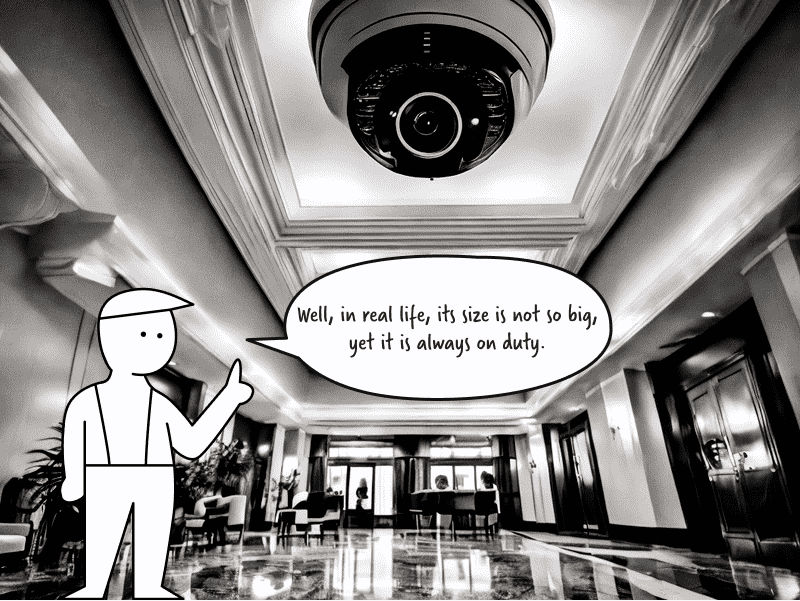 Advanced surveillance systems and AI are always on duty
Advanced surveillance systems and AI are always on duty
Prominent hotel chains such as Marriott, Hilton, and Hyatt have already embraced the integration of intelligent camera systems, analytics software, and facial recognition to fortify their physical security measures.
Smart Access Systems: biometric and QR codes
Here we are — in the future. Biometric authentication using fingerprints, retinas, or facial features now fortifies room access security.
How it works: as you approach your room, a sensor recognizes your fingerprint patterns, retinal details, or facial contours. It's as if your very presence is the key that unlocks the door. No one else can enter the room but you.
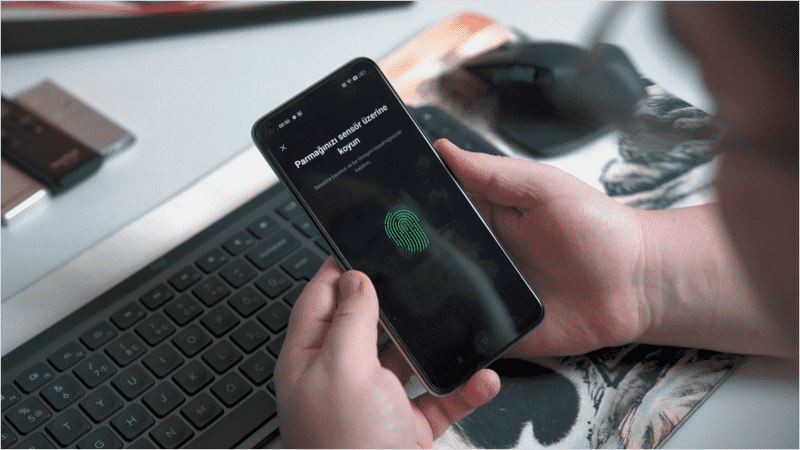 Biometric authentication streamlines and safeguards room entry
Biometric authentication streamlines and safeguards room entry
While biometric access control systems like facial recognition offer heightened security, the specialised hardware can be cumbersome to scale and maintain. Leveraging guest mobile devices for frictionless QR code access provides a more convenient digital solution for hotels seeking secure access management.
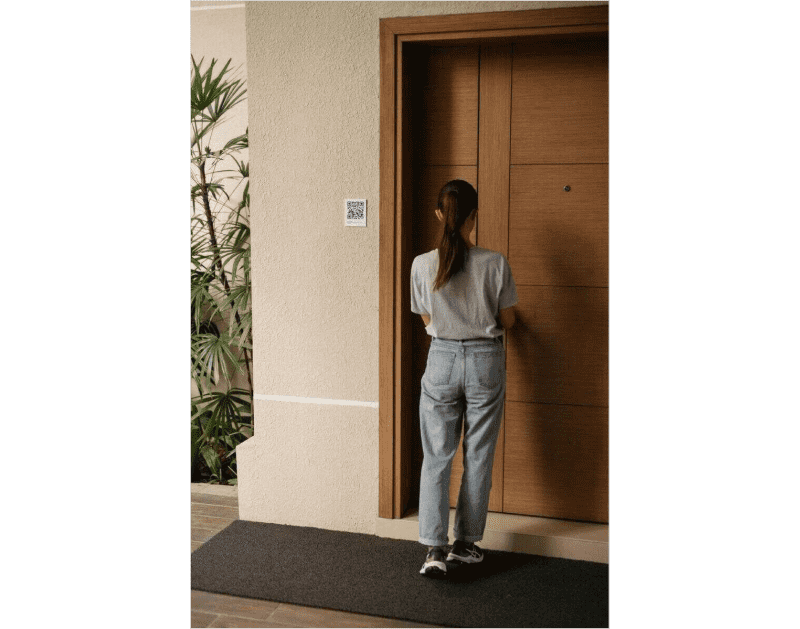 QR-codes for room access
QR-codes for room access
In this digital age, QR codes hold the power of encrypted secrets. With each code securely tailored for every guest, the risk of unwanted entry or misplaced key cards diminishes.
If you're interested in implementing QR code access, our team can help. With over 4 years specialising in QR code integration, we deeply understand frictionless security. Reach out so we can explore possibilities for your property's needs.Contactless technologies, such as biometric access and QR codes, not only improve security but also promote hygiene and reduce germ transmission — particularly relevant in the post-COVID era, as they eliminate the need for physical touch.
Internet of Things (IoT) safety devices
Smart IoT sensors offer real-time detection of hazards such as smoke, fire, and carbon monoxide.
Sensors capable of detecting fire or smoke trigger a rapid chain reaction: alarms sound, sprinklers deploy, and emergency lights guide the way. This proactive approach enables immediate responses to potential safety threats, safeguarding guests and staff.
How it works:
- Imagine smoke billowing from a kitchen fire with guests in the lobby.
- Within seconds, overhead sensors detect the smoke particles, setting off fire alarms throughout the hotel.
- Sprinklers activate in the kitchen, dousing the flames before they spread.
- Emergency lights create a clear path towards exits and stairwells.
- A security officer receives real-time alerts on his tablet showing the origin and spread of the smoke, guides guests to safety while pinpointing the fire's location for first responders.
- Thanks to the rapid sensor response, the fire is quickly contained, with no injuries.
Hotel maintenance automation systems
Hotel automation systems also allow hotels to elevate safety and security through enhanced threat detection, rapid response capabilities, and preventative risk mitigation.
For example, regular automated technical inspections let managers monitor equipment status and proactively address malfunctions before they become dangerous.
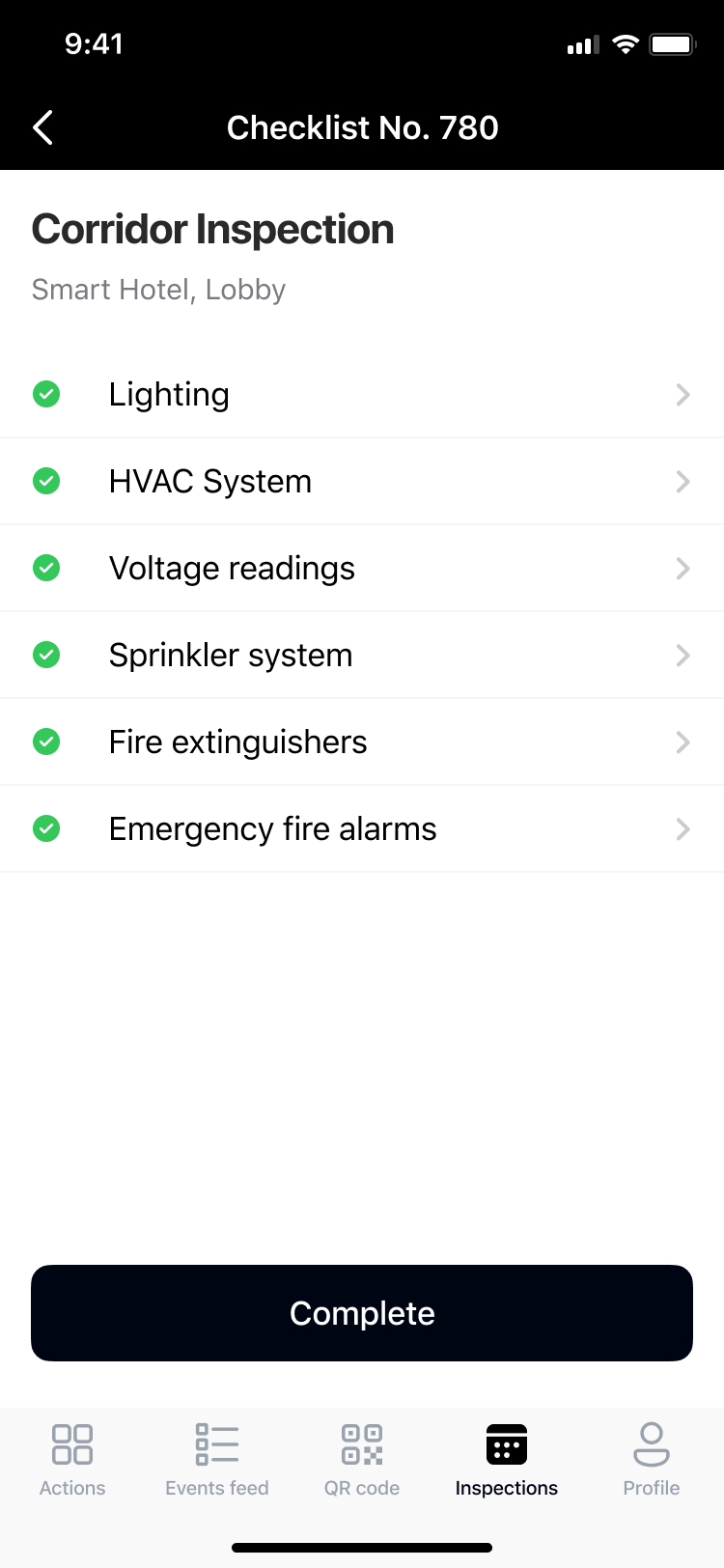
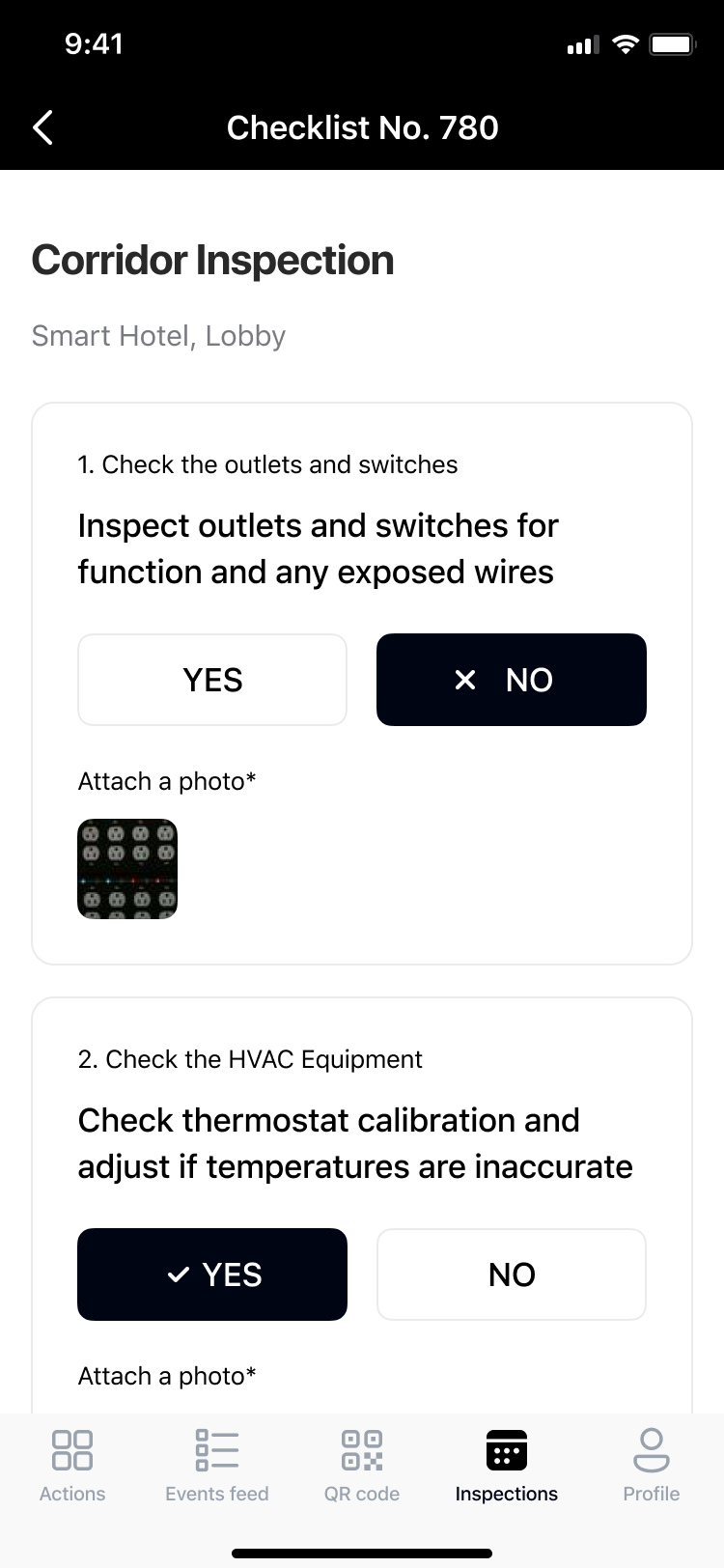
Digital inspections for safety and security
Such systems can also help mitigate health hazards by ensuring proper adherence to food safety protocols. They can automatically check that cooling equipment is working properly to avoid foodborne illnesses.
Additionally, they can prompt staff to follow cleaning and disinfection schedules, reducing the spread of contagious diseases.
In this way, automation helps hotels maintain high health and hygiene standards, safeguarding guests from illness.
And what about fast communication? Hotel automation systems also typically incorporate tools that enable rapid communication between employees. This significantly increases response speed for resolving problems.
For example, if a corridor on the 4th floor is dark due to an electrical issue, any staff member can immediately transmit this through the system. It will automatically notify the facilities electrician, who can proactively resolve the wiring issue before guests are impacted.
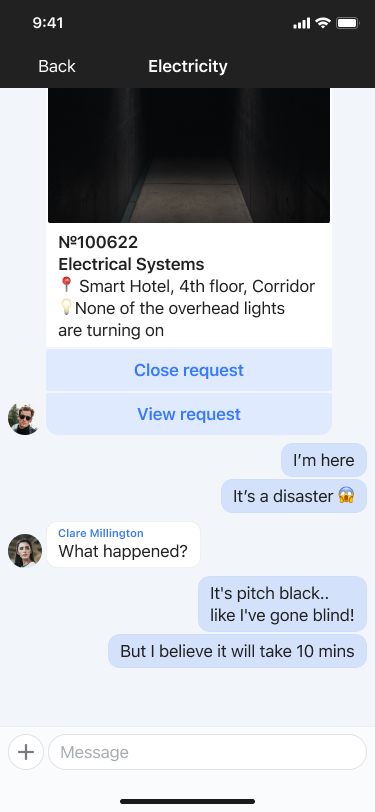
Hotel staff using automation system to quickly communicate and coordinate response
Benefits of adopting innovative hotel safety and security technologies
Enhanced guest safety and satisfaction
With innovative technologies, guests can feel more secure and enjoy their stay without worrying about safety.
Smart access systems, AI surveillance, and emergency response automation provide a safer environment. Together, these innovations minimise risks, foster peace of mind, and enable staff to deliver more personalised service — creating positive guest experiences that build loyalty and repeat business. The future looks bright for tech-enabled hospitality.
For example, facial recognition has proven especially effective for hotel check-in. A great example of this innovation can be observed in two Marriott hotels in China. Here, guests are presented with an alternative to the customary check-in desk – a self-service kiosk. Facial recognition technology swiftly scans a guest's face, accurately identifies them, and issues a key card within minutes. This showcases seamless fusion of hotel safety tech and guest service.
Improved staff safety and workflow efficiency
Biometrics like fingerprints and facial recognition create barriers against unauthorised room access. Similarly, encrypted QR codes diminish duplication potential and unauthorised entry.
Beyond guest security, these tech advancements significantly reduce risks for staff by prioritising their well-being. Streamlined safety protocols not only ensure a secure workplace, but also empowers staff to focus on delivering great service to guests.
With real-time tech-driven safety solutions, the staff can respond promptly to incidents, preventing risks before any adverse impact on guest experience.
Positive impact on hotel reputation and brand image
In an era of online reviews and social media, one incident can damage a hotel's image. Hoteliers must proactively address health safety concerns alongside traditional security measures to uphold a positive impression.
Moreover, hotels boasting robust guest safety can gain a competitive edge. Adopting advanced safety technologies demonstrates a commitment to guest and staff safety, building a reputation as secure and caring. Positive safety reviews drive bookings and word-of-mouth, enhancing a hotel's brand image.
Enhancing safety is a journey for hotels. Start with training staff and meeting legal requirements. Then, gradually implement modern tech like analytics and automation to strengthen protections.
Step-by-step, hotels can integrate human skill with technology's advantages to transform capabilities over time. The path forward uplifts safety, improves guest experiences, and builds reputations.
Work with trusted providers to tailor progressive solutions that navigate this complex landscape. We're always available to discuss IT solutions for automation that progressively level up your hotel's safety and security. Should you have any questions, feel free to contact us.




